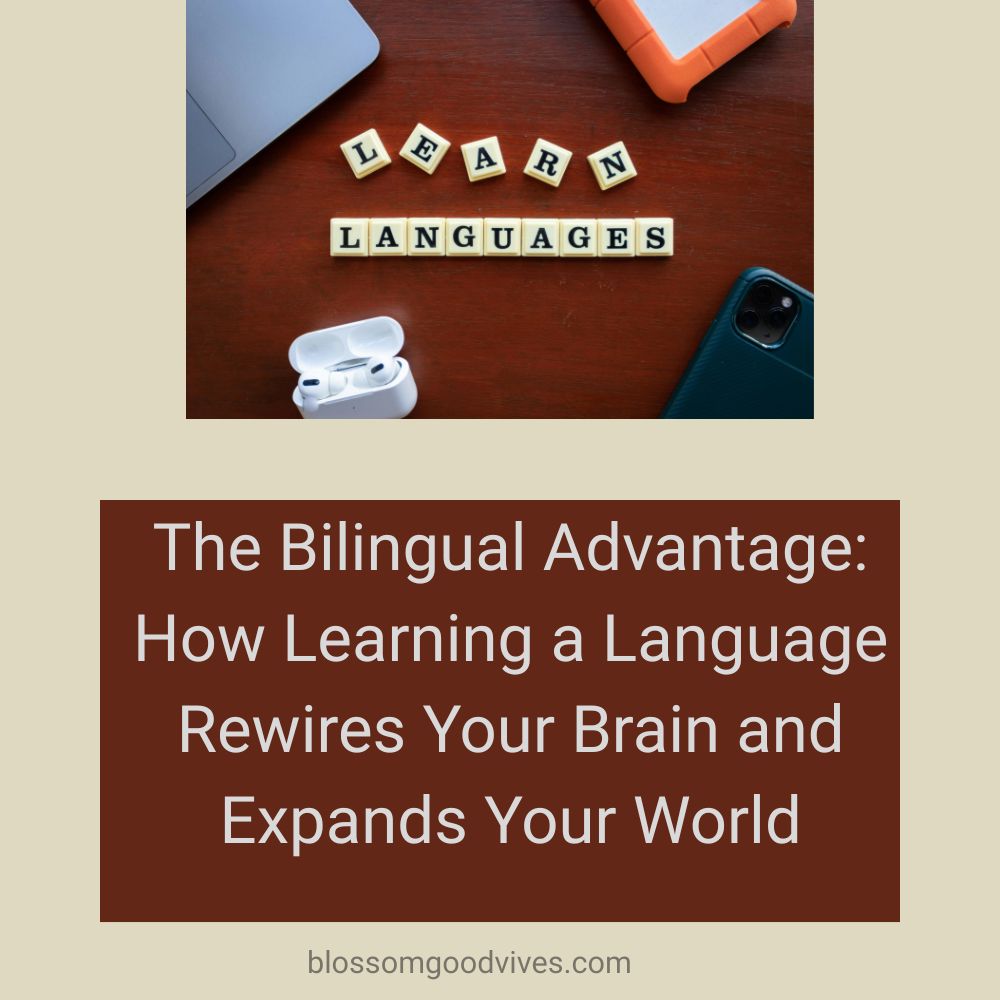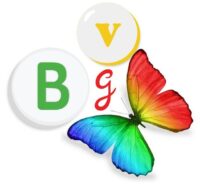
Personal development is often visualized as a staircase: a linear ascent toward a better job, a sharper mind, or a healthier body. But what if one of the most powerful tools for growth wasn’t about climbing higher, but about expanding wider?
Learning a new language is a unique and profound catalyst for personal development, offering benefits that ripple far beyond the ability to order a coffee in a foreign city. It is a comprehensive workout for the brain, a key to cultural empathy, and a mirror that reflects the hidden contours of your own identity.
The Cognitive Gym: Building a Stronger, More Agile Brain
The most immediate impact of language learning is on the structure and function of the brain. Neuroscientists have found that bilingualism and multilingualism act as a form of constant cognitive training.
Enhanced Executive Function: Juggling two languages requires your brain to constantly inhibit one language while activating the other. This strengthens the prefrontal cortex—the brain’s command center for executive functions. This leads to improved:
Focus and Attention: Multilinguals are better at filtering out irrelevant information and concentrating on the task at hand.
Problem-Solving: The mental flexibility required to switch between linguistic systems translates into more creative and adaptive problem-solving skills.
Working Memory: Holding and manipulating information in your mind is a skill sharpened by the demands of language learning.
Delayed Cognitive Decline: Numerous studies, including those published in journals like Neurology, have shown that speaking multiple languages can delay the onset of age-related diseases like Alzheimer’s and dementia by up to 4-5 years. The “cognitive reserve” built by a lifetime of managing multiple languages helps the brain compensate for damage.
Improved Native Language Skills: Learning the grammar of a new language forces you to consciously understand the rules of your own. You begin to deconstruct your mother tongue, leading to a better grasp of vocabulary, syntax, and communication overall.
The Empathy Engine: Stepping Into Another Cultural Mindset
Language is not just a set of words; it is a vessel for culture, history, and a unique way of seeing the world. This is where language learning transitions from a cognitive exercise to a deeply human one.
Cultural Intelligence (CQ): To learn a language is to inevitably learn about the culture it comes from. You discover untranslatable words (like the German “Schadenfreude” or the Japanese “Komorebi”), which represent concepts that a culture has deemed important enough to label. This fosters a deep appreciation for perspectives different from your own, a critical skill in our globalized world.
The Theory of Mind: This is the ability to understand that others have beliefs, desires, and perspectives that are different from your own. Language learning directly practices this skill. You must constantly consider your audience: Do they understand me? What is the cultural context of what I’m trying to say? This practice enhances your empathy and social perception in all areas of life.
Breaking Down Barriers: Speaking someone’s native language, even imperfectly, is a sign of profound respect. It breaks down barriers and builds bridges of trust and connection that are impossible to create through a translator or a shared second language.
The Identity Mirror: Discovering Your Self Through Another Tongue
Perhaps the most surprising aspect of language learning is its power for self-discovery. As you acquire a new language, you often acquire a new facet of your personality.
Linguistic Relativity (The Sapir-Whorf Hypothesis): While the strong version of this theory is debated, there is evidence that the language we speak influences how we think and perceive the world. Learning a new language gives you a new set of tools for conceptualizing reality. You might find yourself more direct in German, more polite and indirect in Japanese, or more emotionally expressive in Italian.
A New “You”: Many bilinguals report feeling like a different person when they switch languages. This can be liberating. It allows you to experiment with aspects of your personality that might feel constrained in your native tongue. It can boost confidence and provide a new lens through which to view your own identity.
The Beginner’s Mindset: Language learning is a humbling exercise. It forces you to be a beginner again—to make mistakes, sound foolish, and embrace the process of not knowing. This cultivates humility, resilience, and a growth mindset that is invaluable in every other pursuit.
Beyond Fluency: The Journey Is the Reward
The goal of language learning for personal development does not have to be perfect fluency. The benefits begin accruing from the very first lesson. The struggle to form a sentence, the joy of understanding a song’s lyrics, the connection made with a stranger—these are the moments where growth happens.
How to Begin Your Linguistic Journey:
Find Your “Why”: Connect the language to a deep personal interest—a love for Italian art, a desire to read Russian literature, a plan to travel across Latin America. This intrinsic motivation will sustain you longer than any external goal.
Embrace Consistency Over Intensity: 15-20 minutes of daily practice is far more effective than a 3-hour cram session once a week. Use apps, listen to podcasts on your commute, or label objects in your house.
Focus on Communication, Not Perfection: The aim is to be understood, not to speak with perfect grammar from day one. Embrace your mistakes as learning opportunities.
Engage with the Culture: Watch films, listen to music, cook the food, and try to connect with native speakers. This makes the language come alive and reinforces your learning.
Learning a language is one of the most holistic acts of personal development available to us. It simultaneously builds a more resilient brain, a more empathetic heart, and a more nuanced understanding of oneself. It is not merely about adding a skill to your resume; it is about fundamentally expanding the boundaries of your mind and your world. In the journey to understand another language, you ultimately come to understand yourself more deeply.
References & Further Reading:
Bialystok, E., Craik, F. I., & Freedman, M. (2007). Bilingualism as a protection against the onset of symptoms of dementia. Neuropsychologia, 45(2), 459–464.
A key study on the delay of cognitive decline in bilingual individuals.
Boroditsky, L. (2011). How Language Shapes Thought. Scientific American, 304(2), 62–65.
An accessible article exploring the concepts of linguistic relativity and how language influences perception.
Kramsch, C. (2009). The Multilingual Subject: What Foreign Language Learners Say About Their Experience and Why It Matters. Oxford University Press.
A deeper dive into the personal and identity-based aspects of language learning.
Deci, E. L., & Ryan, R. M. (2000). The “What” and “Why” of Goal Pursuits: Human Needs and the Self-Determination of Behavior. Psychological Inquiry, 11(4), 227–268.
Provides the theoretical background on intrinsic motivation, which is crucial for sustaining language learning.
